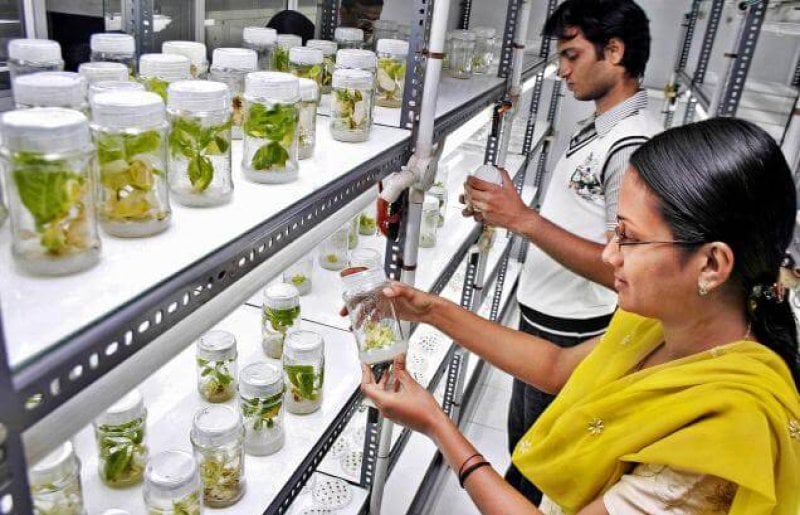Extreme weather is threatening global food supplies. What can be done?
Extreme weather is threatening global food supplies. What can be done?


As the world grapples with the challenge of feeding a growing population against an increasingly unstable backdrop, leading journal Science [published] what’s believed to be the most comprehensive scientific review ever undertaken into how climate change is likely to exacerbate the significant environmental impacts that agriculture already makes on our planet.
Led by scientists from China’s Chongqing University alongside numerous international institutions including The Nature Conservancy (TNC), the study catalogues the extent to which the long-term health of people and nature depends on the resilience and sustainability of food production systems in light of ongoing climate change.
“The paper highlights where agriculture’s negative environmental impacts could be further magnified as the climate crisis deepens, exacerbating greenhouse gas emissions, nutrient pollution, and habitat and soil loss,” said lead author Yi Yang, professor at Chongqing University
Based on a comprehensive review of pre-existing science, the study predicts that climate change is likely to compound agriculture’s existing impacts by shrinking harvests, reducing the effectiveness of synthetic inputs like fertilizers, and accelerating the damage caused by crop pests and soil erosion.
Declining yields and fertility loss could lead in turn to increased clearing of land for food production, causing the loss of wildlife habitat and biodiversity, while also necessitating increased application of fertilizer and pesticides to maintain productivity, with knock-on effects for surrounding ecosystems.
Perhaps most worrying are the feedback loops highlighted by this study that threaten to exacerbate agriculture’s environmental impacts, even as the sector pivots to respond to climate-driven demands: from rice paddies emitting increasing levels of the powerful greenhouse gas methane (CH4) and degraded soils releasing higher levels of nitrous oxide (N2O), to land clearance and soil tillage accelerating land-based carbon emissions.
Other vicious circles could be created as intensification of farming practices demands increased irrigation and the application of additional agrichemicals—both energy-intensive practices—while the run-off of these substances into freshwater systems could also boost biogenic emissions of additional greenhouse gases.
Co-author Joe Fargione—TNC’s science director for North America—said: “There is already ample reason to fight climate change, but this paper highlights an additional reason—that it makes it harder to achieve sustainable agriculture. To feed a growing world, we need to continue to increase agricultural yields, rather than cutting down remaining rainforests and plowing up remaining prairie to expand agriculture. But that means conserving soils, weathering droughts, and controlling pests—all of which will be harder in a warmer world with bigger storms, deeper droughts, and longer growing seasons for pests.
But there is hope.
“Fortunately, many of the practices that make agriculture more sustainable and resilient can also help slow climate change,” said David Tilman, Regents Professor and McKnight Presidential Chair in Ecology at the University of Minnesota. Approaches that promote soil health, such as cover crops, no-till, and crop diversification, can also increase the ability of agricultural soils to store carbon. Agroforestry can diversify farmer revenue, provide shade for livestock, and serve as windbreaks while also sequestering further carbon. More efficient fertilizer use reduces water pollution as well as emissions of nitrous oxide—a greenhouse gas 300 times as powerful as CO2.
“Strategies along the food system value chain can also be greatly helpful, like reducing food waste and the overconsumption of meat, especially in high-income countries. These strategies can reduce the overall land base of the global food system, thus lowering climate risks and the feedback effects identified in the study,” added Yi Yang.
But the longer we wait to mainstream these strategies—alongside reducing emissions from energy, transportation, construction and other economic sectors—the harder it will be to make agriculture sustainable.
This is an excerpt. Read the original post here

 | Videos | More... |

Video: Nuclear energy will destroy us? Global warming is an existential threat? Chemicals are massacring bees? Donate to the Green Industrial Complex!
 | Bees & Pollinators | More... |

GLP podcast: Science journalism is a mess. Here’s how to fix it

Mosquito massacre: Can we safely tackle malaria with a CRISPR gene drive?

Are we facing an ‘Insect Apocalypse’ caused by ‘intensive, industrial’ farming and agricultural chemicals? The media say yes; Science says ‘no’
 | Infographics | More... |

Infographic: Global regulatory and health research agencies on whether glyphosate causes cancer
 | GMO FAQs | More... |

Why is there controversy over GMO foods but not GMO drugs?

How are GMOs labeled around the world?

How does genetic engineering differ from conventional breeding?
 | GLP Profiles | More... |

Alex Jones: Right-wing conspiracy theorist stokes fear of GMOs, pesticides to sell ‘health supplements’





